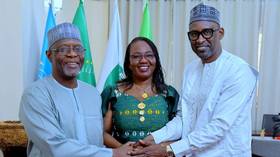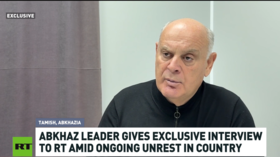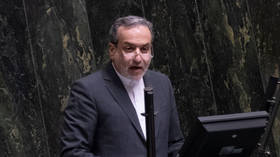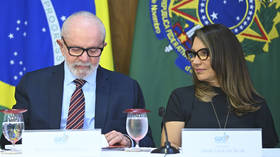African state scraps EU security missions
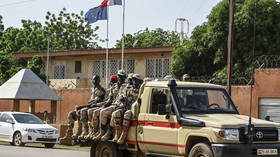
Niger’s military government has withdrawn from two major security pacts with the European Union, saying it would end any “privileges and immunities” offered to EU forces under the deals.
Niamey’s foreign ministry announced the decision on Monday, confirming that Niger would no longer participate in the EU Civilian Capacity-Building Mission (EUCAP) or the bloc’s related Military Partnership Mission (EUMPM).
Officials decided to “withdraw the privileges and immunities granted” under the military partnership created earlier this year, and therefore have “no legal obligation” as part of that deal, the ministry said in a memo.
The EUCAP mission was also disbanded, with the government effectively revoking approval for the partnership. First launched in 2012, the project aimed to build up Niger’s civilian police and security forces using EU aid, with a focus on confronting terrorist groups operating in the Sahel region.
The separate military agreement sought to boost the capabilities of Niger’s armed forces “with the aim of independently containing terrorist threats,” according to Germany, which played a major role in the EUMPM. While Berlin previously said it had approved a small deployment of 60 German soldiers for the mission, Niamey made no mention of foreign troops in its latest statement.
The decision came on the heels of meetings between Niger’s military government and a Russian delegation led by Deputy Defense Minister Colonel General Yunus-Bek Yevkurov. According to Niger’s Defense Ministry, the talks centered on “the strengthening of cooperation between the two countries in the field of defense,” though Moscow has yet to comment on the discussions.
Niger has been ruled by military leaders since the overthrow of President Mohamed Bazoum in July, which prompted sweeping sanctions by the EU and the Economic Community of West African States (ECOWAS), a regional economic partnership.
After taking power last summer, the new government quickly moved to suspend military cooperation agreements with France and expelled the French ambassador, and more recently pulled out of an EU partnership created to stem illegal immigration.
Niger, Mali, and Burkina Faso are now seeking to create a federation that unites the three landlocked African states, each of which are ruled by their respective militaries. The foreign ministers of each country held their first meeting last Thursday and agreed on “appropriate measures” for the new union, with Niger hoping the move would transform the region from a “zone of insecurity” into a “zone of prosperity.”
